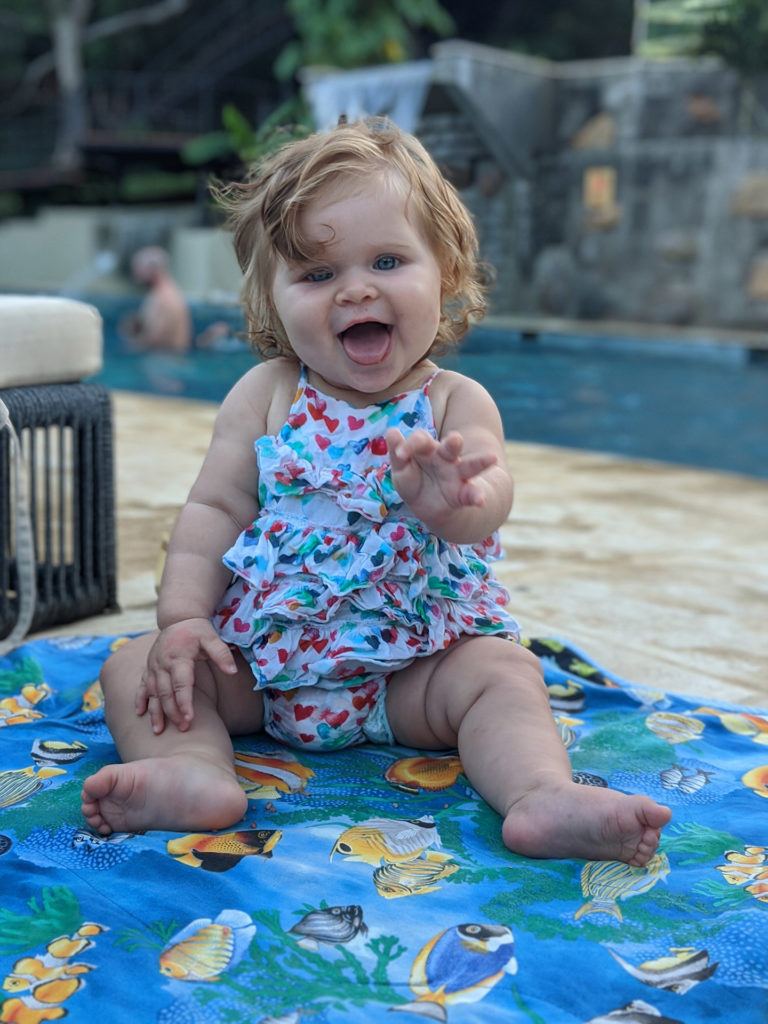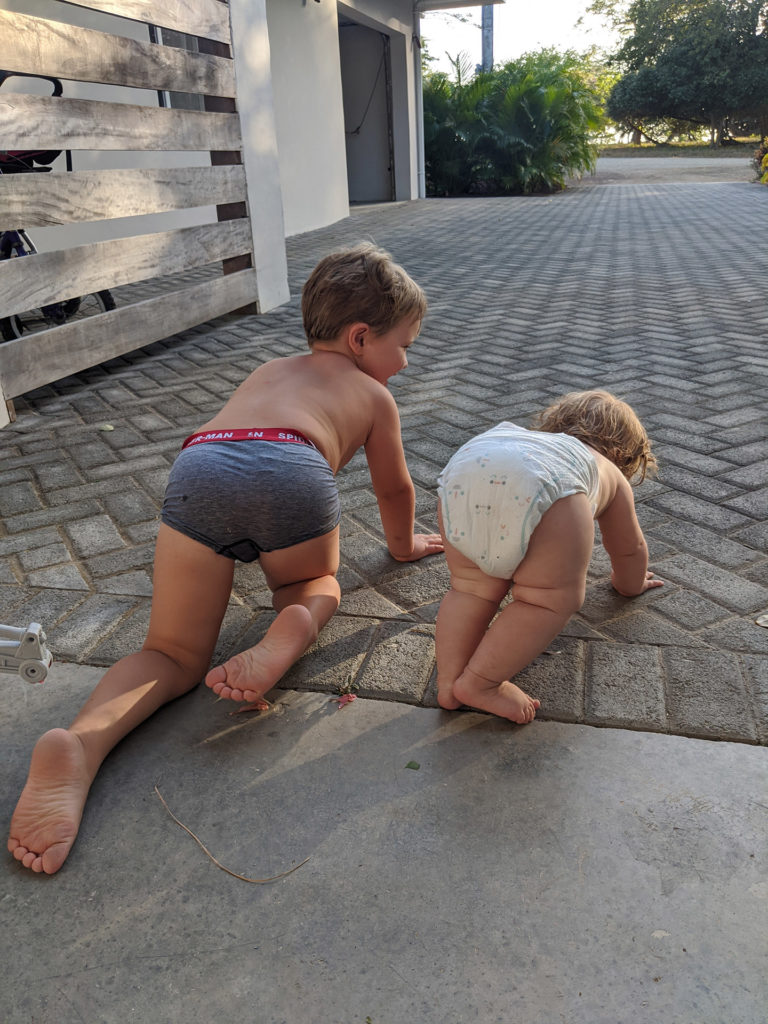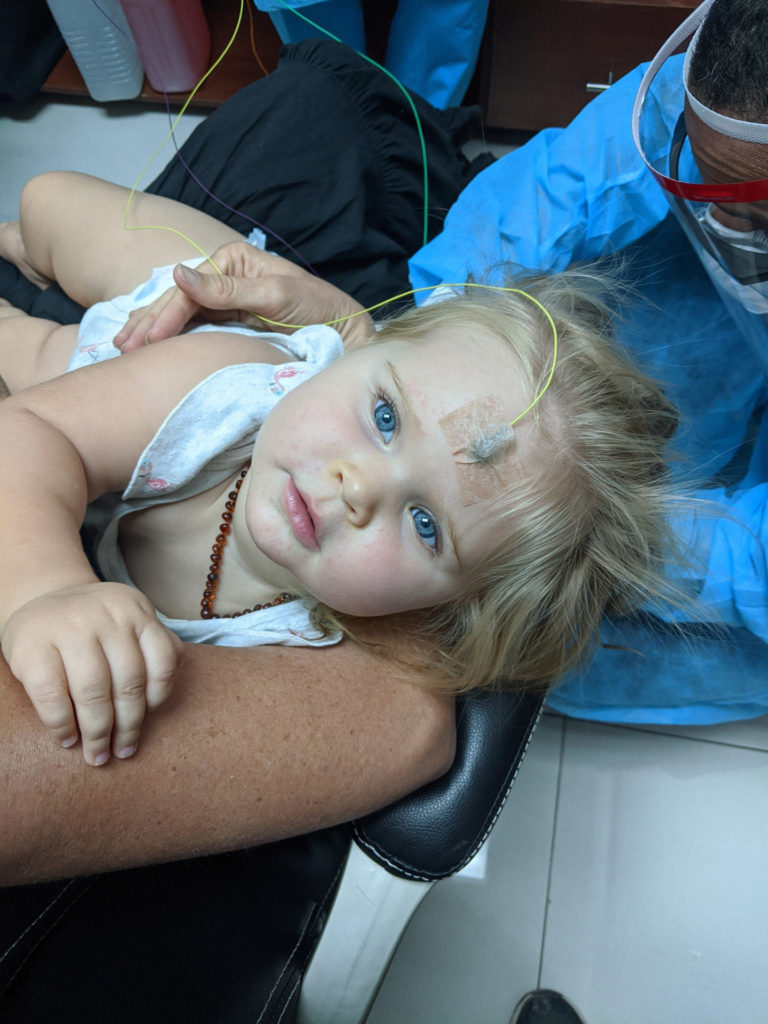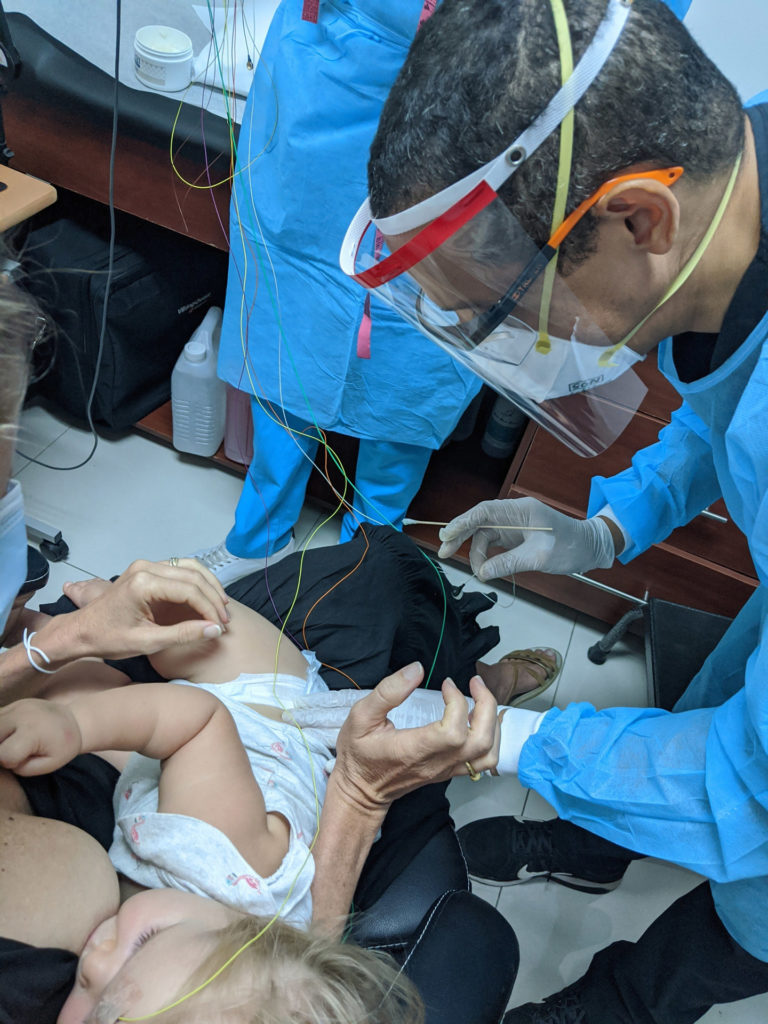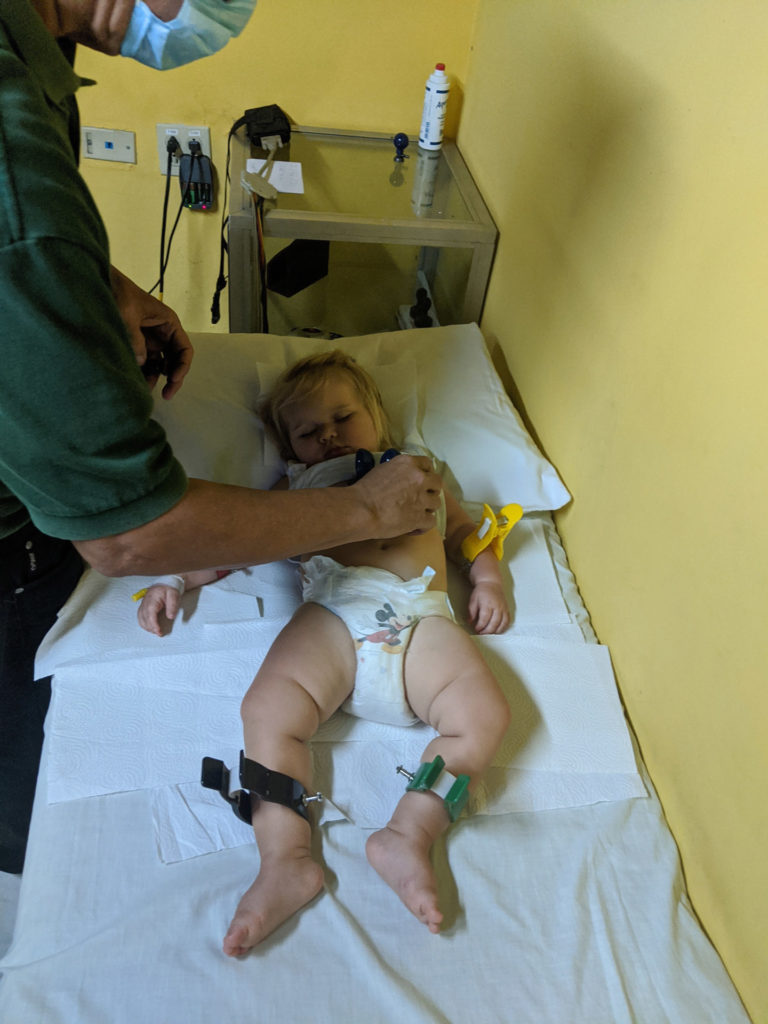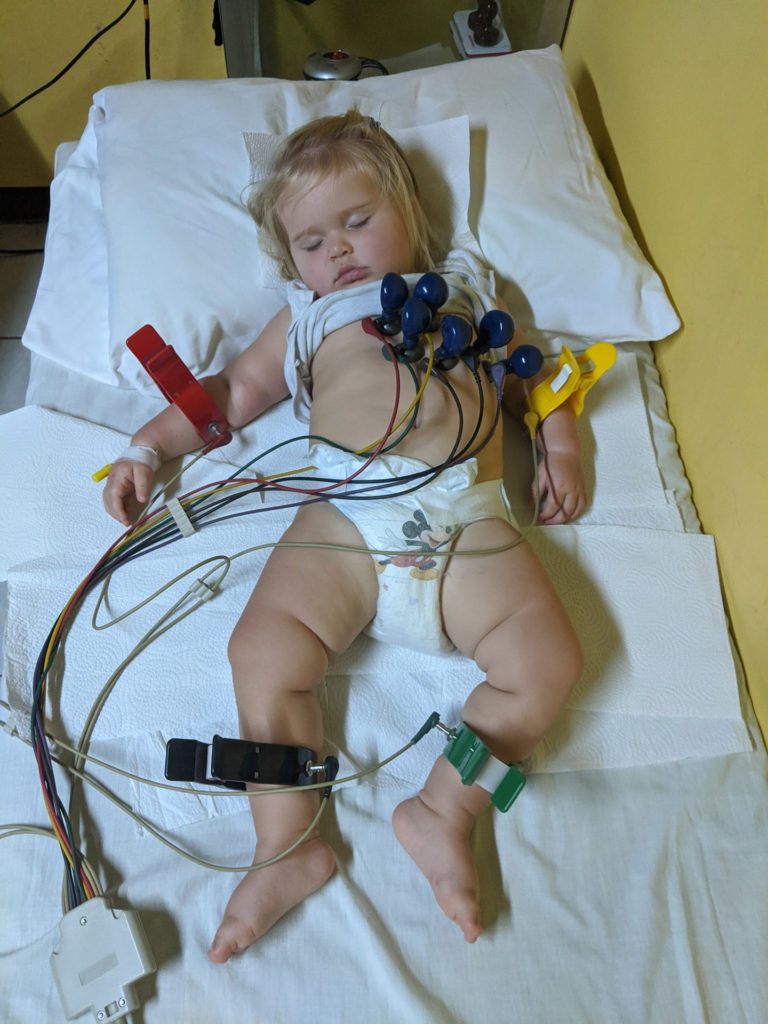Shock, denial and grief: this is what it is to become parents of a child with an incurable progressive disease.
But then we turned that grief into acceptance. Today we’re rolling it into optimism and hope as we step into the public world to share our story and launch Our Moon’s Mission.
Only last year, despite an ensuing global pandemic, we were living contently with our two happy kids. Finn was a wild roaming 3-year-old and at 14 months, Tallulah Moon was just starting to chase him around house. Life was a good mix of kinder-chaos and joy.
But then one day Tallulah started to “walk funny”. Very suddenly, her legs stiffened. Her previously confident stride faltered; her tiny feet began to tip-toe, trip and scissor.
a tiny genetic mutation was giving rise to an insidious disease
We tried hard not to panic as she resorted to crawling again. We rushed for immediate medical advice but nobody could quite say what was happening. We were scared, but we were also naïve. We couldn’t imagine anything “really bad” happening to our child. Meanwhile a tiny genetic mutation was giving rise to an insidious disease.
Soon Tallulah could no longer stand alone at all. Then her arms collapsed beneath her as she crawled. Tallulah’s strength was vaporizing, and she was as bewildered and helpless as we were. Within days, Tallulah could no longer talk or even hold up her head. When she started to choke on food and drink, we hurled ourselves into all-consuming state of terror and the hurried referrals for neurologists, blood tests, MRIs and nerve conduction studies could not come quickly enough.
they searched tirelessly for a reason why our daughter was slipping away
That time was beyond terrifying. We dove head first into the bosom of the Australian Healthcare system, but we felt no less alone and defenseless. As they searched tirelessly for a reason why our daughter was slipping away, we desperately agreed to each and every test. It seemed relentless and fruitless, but Tallulah took each trauma and seemingly turned it into resilience. Meanwhile, it took every inch of willpower to shield our children from the terror consuming us.
This incredible study took a sample of Tallulah’s blood, and mapped every gene in her body.
Finally, through sheer luck, we were able to slip Tallulah Moon into a rare genetic diseases study in Victoria. This incredible study took a sample of Tallulah’s blood, and mapped every gene in her body. This method is known as Whole Genome Sequencing (WGS). Using this powerful diagnostic tool, researchers identified a disease-causing mutation on just one of her 30,000 genes. On 26 August 2020, on a deceivingly perfect winter’s day, our Tallulah Moon was diagnosed with Hereditary Spastic Paraplegia Type 56 (SPG56).
It’s relieving and terrifying it feels in equal measures to finally getting a diagnosis. Relief that the probing of our baby girl can stop: terrifying that there’s no known treatment or cure.
Tallulah was also the first SPG56 diagnosis in Australia. Her severe regression was considered even more rare for this already rare disease, and the doctors found very little information online. The prognosis was vague and ominous. They caringly suggested physical and speech therapies, to focus on love, and contact us periodically if and when things got worse.
We went home. We held our babies close and took our time to process the minefield of emotions. We developed coping strategies and when we finally came up for air, we emerged feeling very lucky: we still had our little girl, and we had hope.
We connected with many other families whose children are living with rare genetic diseases. We shared stories and developed life-long bonds, connected through circumstance and compassion. We even found our SPG56 tribe. They are dotted around the globe, and while we haven’t had the chance to meet this small but important community in person, they have become as dependable as family.
The gamechanger for us was the collective hope to find a cure for incurable diseases. Where rare diseases have not attracted research funding through big companies, here in this vast network, we found families doing it on their own. We learned about many incredible research projects parents had crowdfunded to find gene therapies and repurposed drugs to combat rare genetic diseases.
Now in 2021, after many months of researching, meeting with scientists, interviewing genetic institutes and building our very own team, we launch our campaign to find a cure for SPG56: we launch Our Moon’s Mission!
Our website will grow jam packed with scientific news and updates, but this blog will shine a softer light on this deeply personal mission. Here, we blend the complexities of rare genetic disease, our family, scientific research and hope to share our story with you.
It’s a race against time to beat SPG56 but we have the leadership of world-renowned genetic scientists and your help to get us there.
Follow us. You will discover our journey between a bleak and hopeless prognosis, to where we are today. Our researchers have robots working night and day, testing over 30,000 FDA approved drugs to find something to stop or slow down the disease. We have a world class genetic team adapting a proven therapy to give our daughter the gene she needs, and cure the disease at its source.
Tallulah Moon was born with a progressive disease, but through focus and fundraising for modern genetic research, we will give our daughter the life she deserves. This is our mission, and one of many families we’ve met, whose children are slowly being consumed by diseases like SPG56.
We have a long road ahead. It’s a race against time to beat SPG56 but we have the leadership of world-renowned genetic scientists and the backing of our community. By joining us on this mission, family and friends like you are helping us find that cure.
With you, we are ready for lift-off.

